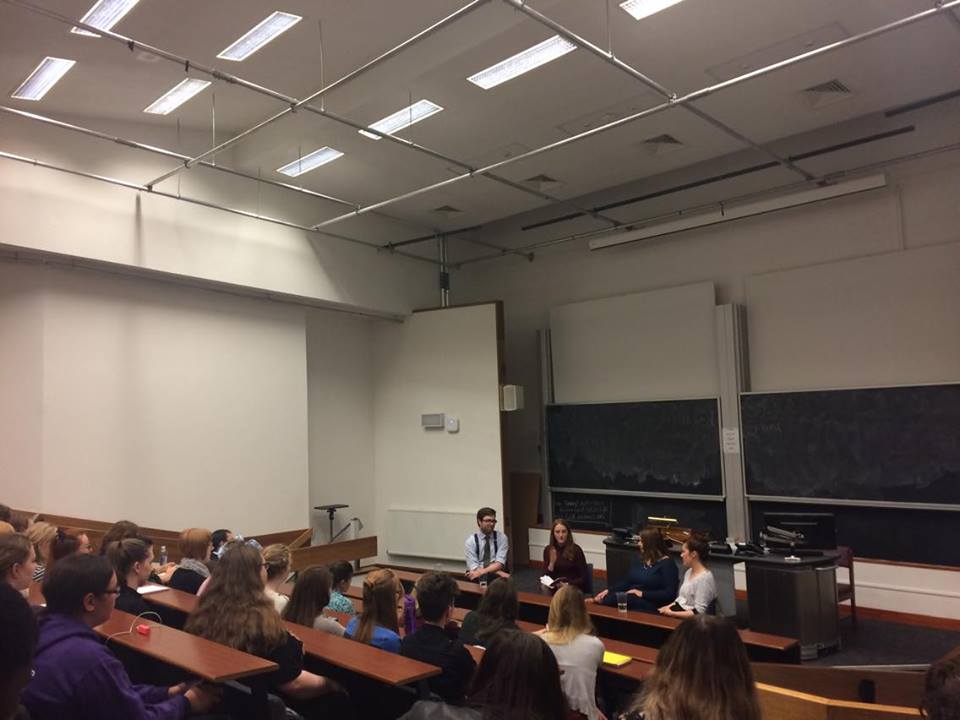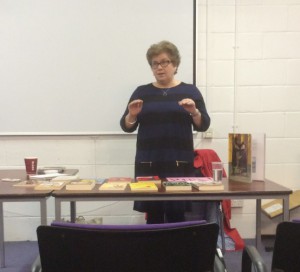On Thursday 27th October, the Society of Young Publishers (SYP) Scotland organised the first editorial event of the year, which took place in Edinburgh at the David Hume Tower. If you are considering a career in the publishing industry, editorial is one of the top choices on the list, functioning as the fundamental department of a publishing company.
The panel of the event, chaired by Rosie Howie, Publishing Manager of Bright Red, consisted of three highly experienced people in editorial departments: Jo Dingley of Canongate Books, the freelancer editor Camilla Rockwood and Robbie Guillory of Freight Books. All speakers shared their experiences on publishing and the reasons why they chose editorial in particular.
Most of the speakers started as editorial assistants, making their way up as editors. All of them emphasized the fact that editorial is a matter of choice and discovery, with Jo and Camilla highlighting the special moment when they get the finished book on their hands, as a reward of working in editorial and one of the top reasons they chose it as a career path.
Communicating with the author and establishing a close relationship with him is an essential part of working in editorial. Apart from the strong engagement with the author, commissioning editors tend to work directly with the author’s agent as well. One of the key parts of editorial, after author care, is to read carefully the manuscripts and share your opinion with the editorials colleagues at weekly meetings, as Jo points out.
People who work in editorial spend a large amount of time considering submissions and familiarising with the house style. Editors and proofreaders should be careful “not to get involved with the content of the manuscript when editing one”, Camilla warns. A useful advice was the fact that editors should be careful with judgement and suggestions as some authors get quite sensitive and over-protective of their manuscripts. This is the reason why editors should approach authors carefully when answering to queries, encouraging face to face meetings with them.
Robbie emphasized that editorial is not “exam marking”, it is a service: “editing is not about eliminating errors; you’ve got to be really curious about things and ideas”. This is one of the hard parts of the job, along with the fact that editors have to manage authors’ expectations, as the target is to keep the cost as low as possible. Jo advised that it is important for editors to be friendly and give reasons to potential rejections of manuscripts: “You should give feedback to rejections and explain what you are looking for at the moment, by giving more information”.
For students who are particularly interested in editorial, all the speakers advised to “put yourself out there” and find internships and work placements for experience. Furthermore, as Camilla suggested, even working in retailing as a bookseller, offers you experience and shows that you are interested in the publishing industry. Familiarising yourself with software such as InDesign, Photoshop and Microsoft Excel, in addition of being aware of new technology and tools is essential. One of the most important advice was also being active on social media and knowing what’s current in the industry. Although it’s a highly competitive industry, all the panel encouraged people who pursue a career in editorial “not to give up”, as trying other areas of publishing is a great way to end up in the department they desire.



